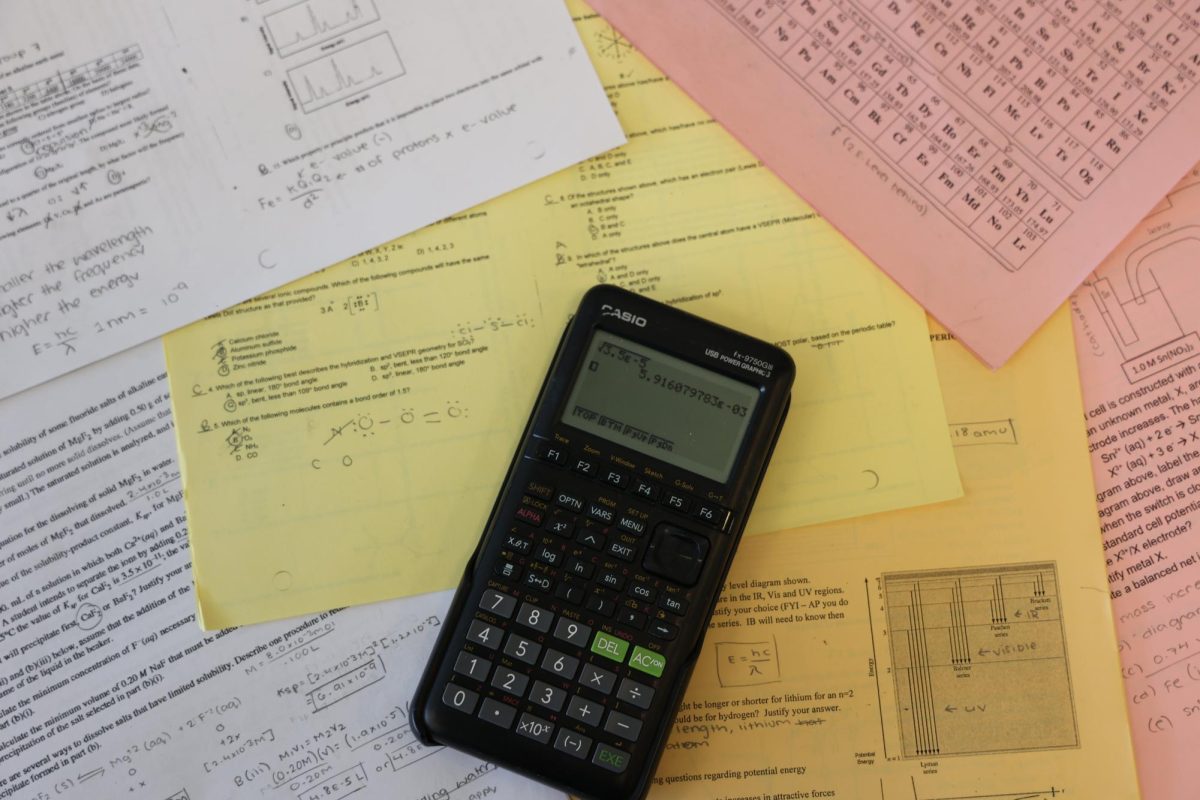Many students get anxious before and while taking tests. SCHS staff and students, however, suggested strategies, such as active recall, spaced repetition, organized study routines and asking friends for help to guarantee more success and help gain remembrance of the test content. Although many cram hours of studying the night before an exam, others encourage studying over an extended period to gain the knowledge long term.
Instructional coach Nancy Schlink believes cramming is not helpful and creates more stress for test takers. She explained that it is better to pace out one’s study sessions and to keep up with content throughout the unit instead of reviewing all the topics at the last minute.
“I strongly encourage students to put in the effort to study over time and to make sure they are understanding content as they go along in the unit, like when doing the daily assignments, rather than realizing they are lost the night before the test when they are filling out a study guide and trying to learn something for the first time,” Schlink said.
Sophomore Annika Agarwal recommended an active recall strategy to help study content prior to a closed-note test.
“You look at your notes, and you take a sheet of paper and write down everything and then try to recall it. Write it down again without looking at your notes. If you can’t remember something – like you don’t know it at the top of your head – mark it down,” Agarwal said. “Remember that because that’s what you need to study. If you don’t know it by heart, you don’t know it at all.”
Similar to Agarwal, freshman Sadhana Arun also uses cramming as a strategy, typically choosing to not use a study schedule. If one does prefer study schedules, however, she suggests reviewing past topics and teaching the content to another student to better remember it.
“I don’t study ahead of time. But for people who do, you should really go over anything you’ve done before and work on stuff that you’re not good at, or try teaching the topic to another person, which I find helps me with things,” Arun said.
Similarly to Arun, chemistry teacher Alan Tan recommended circling the hard problems in a test to come back to and quickly completing the easy problems first. He believes one has more success starting with the simple problems because typically each problem is worth the same amount of points.
“I tell my students this all the time too, do the easy questions first. Really purposely look for them. Because as a teacher, at the end of the day, I won’t know what order you answered the questions in. I’m just gonna look for the right answer,” Tan said.
Tan also believes the best way to acknowledge a student’s learning is through viewing their thinking process. He also suggests that students review their notes everyday when they get home to ensure the content sticks. He does not believe in students cramming. He instead believes it is better for his students to study over time and gain long term memory of the work. This semester, he has been assigning a quiz weekly and a test the following week, so students can pace out their studying.
“What I’m trying to get them to do is to not cram two weeks later, so it’s just a one-week chunk, one-week chunk,” Tan said. “It doesn’t really matter where I’m at. If I get through this much material in half the week, then that’s what the quiz is going to be (about).”
Math teacher Soudabeh Zahidy proposed that students study in advance of the test, and then on the test day, they should briefly review the content. She also recommended eating a good meal and getting an adequate amount of sleep.
“You don’t want to cram… try to do it before the test day or the test week. Then on the test week, just maybe go back and review some things you want to remind yourself (of) because I don’t think you should totally close it and not think about it at all,” Zahidy said. “When it’s really getting closer, you just want to go back and review a little bit, review and remind yourself. Overall, be relaxed.”
Similar to Zahidy, Schlink recommends having a good meal before the exam and lots of sleep. She believes it will all work out eventually.
“On exam day, I would recommend not waiting until the last minute to cram it all in and then hope to remember when the test is in five minutes,” Schlink said. “Get plenty of sleep the night before, eat breakfast, take some deep breaths and relax. Trust that you have done your best in the preparation and studying that you have done up to that day.”


